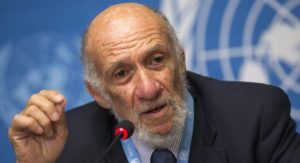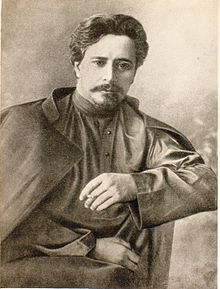To Members Of Congress
 January 7, 2020.
January 7, 2020.
The unlawful and provocative assassination of Iran’s top general, Qasem Soleimani, has already given rise to an escalating spiral of lethal events. The greatest risks are to stumble escalating into a devastating war in the Middle East with grave consequences for the peoples of Iran and Iraq and likely across the region. Such a war would have disastrous effects for this country, for the region and the world. It is certain to do further harm to the reputation of the United States, which already is perceived in much of the world as an irresponsible and criminal political actor in the region, using military force in ways that have made already difficult situations catastrophic by taking various dangerous military, economic and quasi-diplomatic initiatives misleadingly presented as “maximum pressure”
It is imperative for the well-being of our country, and indeed the world, that the Congress of the United States fulfill its most solemn constitutional responsibility, and impose effective restraints on the war-making actions of this impeached president. This is a moment when partisan politics should be put aside, not only for the sake of national interests but for the benefit of humanity – -we should realize that these unilateral actions by the United States have
put the entire world at risk. It is also a moment when Republicans as well as Democrats must stand up for a sane foreign policy, and for diplomacy and peace instead of aggression and war, and fulfill their duties as Members of Congress.
The Iranian people have endured decades of economic warfare waged by the US and its allies. Since the revolution of 1979 in Iran and the end of a mutually beneficial relationship between the US and Iran’s autocratic leader, the Shah, the US has imposed numerous sanctions on Iran under various guises, threatened it with war and inflicted pain and suffering on its people.
What is desperately needed with respect to Iran is not any further recourse to coercive diplomacy based on escalating threats, crippling sanctions, and tit-for-tat military actions. What is urgently needed is an immediate shift to restorative diplomacy based on mutual respect for international and domestic law, with the objective of peace, stability, and cooperation.
From all that we now know, General Soleimani had come to Iraq without stealth on a commercial plane. He came to Iraq on a diplomatic peacemaking mission at the invitation of the Baghdad Government, and with a meeting scheduled on the following day with the Prime Minister that was part of an ongoing effort to seek a lessening of tensions between Iran and Saudi Arabia. In reaction to major violations of its sovereignty, the Iraqi Parliament has voted to expel U.S. troops from their country. In place of what seemed a promising regional initiative the assassination of General Soleimani has resulted in an intensification of conflict, further massive suffering, and the likelihood of dangerous escalation.
We call on Congress to act with urgency to stem this slide toward war and regional chaos.
We urge you to consider imposing ironclad restraints on the authority of the President to make any further use of international force without a clear and definite authorization by the U.S. Congress, which itself should respect the relevant prohibitions of international law and the provisions and procedures of the UN Charter.
Respectfully yours,
Noam Chomsky
Richard Falk
Daniel Ellsberg
Noam Chomsky: US Is A Rogue State And Suleimani’s Assassination Confirms It
Trump’s decision to assassinate one of Iran’s most prominent and highly respected military leaders, Maj. Gen. Qassim Suleimani, has added yet another name to the list of people killed by the U.S. — which many rightly see as the world’s biggest rogue state.
The assassination has escalated hostilities between Tehran and Washington and created an even more explosive situation in the politically volatile Middle East. As was to be expected, Iran has vowed to retaliate on its own terms for the killing of its general, while also announcing that it will withdraw from the Iran nuclear deal. Iraq’s parliament, in turn, has voted to expel all U.S. troops, but Trump has responded with threats of sanctions if the U.S. is forced to remove its troops from the country.
As world-renowned public intellectual Noam Chomsky points out in this exclusive interview for Truthout, the primary aim of U.S. foreign policy in the Middle East has been to control the region’s energy resources. Here Chomsky — a university professor emeritus at MIT and laureate professor of linguistics at the University of Arizona who has published more than 120 books on linguistics, global affairs, U.S. foreign policy, media studies, politics and philosophy — offers his analysis of Trump’s reckless act and its possible effects.
C.J. Polychroniou: Noam, the U.S. assassination of Iran’s Quds Force commander Qassim Suleimani has reaffirmed Washington’s long-held obsession with Tehran and its clerical regime, which goes all the way back to the late 1970s. What is the conflict between U.S. and Iran all about, and does the assassination of Suleimani constitute an act of war?
Noam Chomsky: Act of war? Perhaps we can settle on reckless international terrorism. It seems that Trump’s decision, on a whim, appalled high Pentagon officials who briefed him on options, on pragmatic grounds. If we wish to look beyond, we might ask how we would react in comparable circumstances.
Suppose that Iran were to murder the second-highest U.S. official, its top general, in the Mexico City international airport, along with the commander of a large part of the U.S.-supported army of an allied nation. Would that be an act of war? Others can decide. It is enough for us to recognize that the analogy is fair enough, and that the pretexts put forth by Washington collapse so quickly on examination that it would be embarrassing to run through them.
Suleimani was greatly respected — not only in Iran, where he was a kind of cult figure. This is recognized by U.S. experts on Iran. One of the most prominent experts, Vali Nasr (no dove, and who detests Suleimani), says that Iraqis, including Iraqi Kurds, “don’t see him as the nefarious figure that the West does, but they see him through the prism of defeating ISIS.” They have not forgotten that when the huge, heavily armed U.S.-trained Iraqi army quickly collapsed, and the Kurdish capital of Erbil, then Baghdad and all of Iraq were about to fall in the hands of ISIS [also known as Daesh], it was Suleimani and the Iraqi Shia militias he organized that saved the country. Not a small matter.
As for what the conflict is all about, the background reasons are not obscure. It has long been a primary principle of U.S. foreign policy to control the vast energy resources of the Middle East: to control, not necessarily to use. Iran has been central to this objective during the post-World War II period, and its escape from the U.S. orbit in 1979 has accordingly been intolerable.
The “obsession” can be traced to 1953, when Britain — the overlord of Iran since oil was discovered there — was unable to prevent the government from taking over its own resources and called on the global superpower to manage the operation. There is no space to review the course of the obsession since in detail, but some highlights are instructive. Read more
From A Dysfunctional World Order To A Sustainable Future
In the interview that follows, Richard Falk, an internationally-renowned scholar of Global Politics and International Law, offers his insights on the contemporary state of world politics and shares his radical vision of the future world order. Richard Falk is Alfred G. Milbank Professor Emeritus of International Law and Practice at Princeton University, where he taught for more than forty years, former United Nations Special Rapporteur on Human Rights in Occupied Palestine and Advisor of the POMEAS Project, Istanbul Policy Center, Sabanci University. He has served on scores of Commissions on International Law and Justice and is author and editor of more than fifty books, including (Re)Imagining Humane Global Governance, Palestine: The Legitimacy of Hope and Chaos and Counterrevolution: After the Arab Spring.
C. J. Polychroniou is scholar, author and journalist. He has taught at numerous Universities in Europe and the United States, was founder and director of the now defunct Centre for the Study of Globalization in Athens, Greece, and author and editor of scores of books, academic articles and popular essays. His latest books Optimism Over Despair: On Capitalism, Empire, and Social Change (conversations with Noam Chomsky) and The Political Economy of Climate Change and the Global New Deal (conversations with Noam Chomsky and Robert Pollin; forthcoming).
C. J. Polychroniou: Richard, I want to start this interview on the state of global affairs near the end of the second decade of the 21st century by moving from the abstract to the concrete. To begin with, it’s regarded as axiomatic that the postwar international liberal order is fracturing and that we are at the same time in the midst of a geopolitical transition where the most prominent characteristic seems to be the decline of the United States as a global superpower. With that in mind, can you offer us a panoramic perspective on the contemporary state of global affairs? In that context, what do you consider to be the primary changes under way, and the emerging challenges and threats to global peace and stability?
Richard Falk: There are many crosscutting tendencies now evident at the global level. At the very time when globalizing challenges are intensifying, the mechanisms available for regional and global cooperation are becoming dangerously less effective. The failure to address climate change, so clearly in the global public interest, is emblematic of a dysfunctional world order system. This failure can be further delineated by reference to two distinct, yet interrelated developments. The first characterized by a vacuum in global leadership, which reflects both the overall decline of the United States as well as its explicit renunciation of such a role by the Trump presidency. Trump proudly proclaims that his only political agenda is shaped by American national interests, declaring he was elected president of the United States, and not the world. The second broader development is the rise of autocrats in almost every important sovereign state, whether by popular will or through imposed rule, resulting in the affirmation of an ultra-nationalist approach to foreign policy, given ideological intensity by chauvinistic and ethnic hostility toward migrants and internal minorities. This kind of exclusionary statism contributes to the emergence of what might be called ‘global Trumpism’ further obstructing global problem-solving, shared solutions to common problems. A discernable effect of these two dimensions of world order is to diminish the relevance and authority of the United Nations and international law, as well as a declining respect for standards of international human rights and a disturbing indifference to global warming and other global scale challenges, including to biodiversity and the stability of major global rainforests.
Overall, what has been emerging globally is a reinvigoration of the seventeenth century Westphalian regional system of sovereign states that arose in Europe after more than a century of devastating religious wars, but under vastly different conditions that now pose dire threats to stability of international relations and the wellbeing of peoples throughout the world. Among these differences are the dependence upon responsible internal behavior by states in an era of growing ecological interdependence. The tolerance of fires in the Amazon rainforest by the Brazilian government for the sake of economic growth, via agrobusiness and logging, endangers a vital global source of biodiversity as well as depletes essential carbon capturing capabilities of the vast forest area, yet there is no way under existing international norms to challenge Brazil’s sovereign prerogative to set its own policy agenda, however irresponsible with respect to the ecological future. Read more
The Abuse Of The Right To Sexual And Reproductive Health In Nigeria: The Way Out
Somewhere in Osun State, Nifemi, a three-year old baby, has been put under the knife for her clitoris to be cut off. Somewhere in Zamfara, thirteen-year-old Aisha has been betrothed to a 65-year-old Alhaji. Somewhere in Lekki, ten-year-old Ayoola is being sexually abused by his uncle. Somewhere in Zamfara, new mother, Aisha, just drew her last breath after bleeding profusely due to the negligence of the medical practitioners that handled her childbirth. Each of these people are victims of the failed healthcare system which Nigerians are constantly being subjected to. For a long period of time, the issue of the abuse of the right to sexual and reproductive healthcare in Nigeria has been ignored like a slowly growing pimple. However, the previous pimple has now developed into an unavoidable boil ridden with pus and blood. Much to the chagrin of the powers that be, the ripple effects of the poor handling of sexual and reproductive health in Nigeria, can no longer be swept under the carpet.
The World Health Organisation defines reproductive health as: “A complete state of physical, mental and social wellbeing, and not merely the absence of disease or infirmity in all matters related the reproductive system, its functions and its processes” [1]. The right to sexual and reproductive health has slowly garnered recognition over the past five decades. From the World Population Conferences in Rome and Belgrade held at 1958 and 1965 respectively [2], to the Beijing Conference of 1995 [3]; reproductive and sexual health has constantly been reaffirmed as a sine qua non in the lives of both men and women. In Nigeria, several Acts, and policies alike, have been enacted in order to guarantee this right to every Nigerian. They include, amongst others: The HIV(Anti-Discrimination) Act, 2013; the Violence Against Persons Prohibition Act, 2015; and the National Strategic Framework for the Elimination of Obstetric Fistula in Nigeria (2019-2023) [4].
However, the Nigerian situation seemingly sings a different tune. In spite of the existing legal framework, there have been numerous cases bordering on the flagrant abuse of the right to reproductive and sexual health in Nigeria- ranging from child marriage to sexual violence.
Currently, Nigeria has the highest number of child brides in Africa [5]. Over 20% of global maternal deaths occur in Nigeria with a staggering 600,000 maternal deaths enumerated from 2005-2015 [6]. In the same vein, over 25 percent of Nigerian women have been circumcised, with Osun State hosting the highest prevalence rate of 77 percent [7]. Each of these violations have negative effects on victims, hence, the global attention which the right to reproductive and sexual health has attracted. For example, there has been no report on the health benefits triggered by Female Genital Mutilation; however, numerous studies and research works have reported the harmful effects of female genital mutilation which could range from immediate complications which include: shock, haemorrhage and genital tissue swelling; to long-term complications which include: pain during sexual intercourse, urinary tract infections and menstrual problems [8].
Read more
Leonid Andreyev ~ The Seven Who Were Hanged
Foreword by Herman Bernstein
Leonid Andreyev, who was born in Oryol, in 1871, is the most popular, and next to Tolstoy, the most gifted writer in Russia to-day. Andreyev has written many important stories and dramas, the best known among which are “Red Laughter,” “Life of Man,” “To the Stars,” “The Life of Vasily Fiveisky,” “Eliazar,” “Black Masks,” and “The Story of the Seven Who Were Hanged.”
In “Red Laughter” he depicted the horrors of war as few men had ever before done it. He dipped his pen into the blood of Russia and wrote the tragedy of the Manchurian war.
In his “Life of Man” Andreyev produced a great, imaginative “morality” play which has been ranked by European critics with some of the greatest dramatic masterpieces.
The story of “The Seven Who Were Hanged” is thus far his most important achievement. The keen psychological insight and the masterly simplicity with which Andreyev has penetrated and depicted each of the tragedies of the seven who were hanged place him in the same class as an artist with Russia’s greatest masters of fiction, Dostoyevsky, Turgenev and Tolstoy.
I consider myself fortunate to be able to present to the English-reading public this remarkable work, which has already produced a profound impression in Europe and which, I believe, is destined for a long time to come to play an important part in opening the eyes of the world to the horrors perpetrated in Russia and to the violence and iniquity of the destruction of human life, whatever the error or the crime.
Introduction by Leonid Andreyev
I am very glad that “The Story of the Seven Who Were Hanged” will be read in English. The misfortune of us all is that we know so little, even nothing, about one another—neither about the soul, nor the life, the sufferings, the habits, the inclinations, the aspirations of one another. Literature, which I have the honor to serve, is dear to me just because the noblest task it sets before itself is that of wiping out boundaries and distances.
As in a hard shell, every human being is enclosed in a cover of body, dress, and life. Who is man? We may only conjecture. What constitutes his joy or his sorrow? We may guess only by his acts, which are oft-times enigmatic; by his laughter and by his tears, which are often entirely incomprehensible to us. And if we, Russians, who live so closely together in constant misery, understand one another so poorly that we mercilessly put to death those who should be pitied or even rewarded, and reward those who should be punished by contempt and anger—how much more difficult is it for you Americans, to understand distant Russia? But then, it is just as difficult for us Russians to understand distant America, of which we dream in our youth and over which we ponder so deeply in our years of maturity.
The Jewish massacres and famine; a Parliament and executions; pillage and the greatest heroism; “The Black Hundred,” and Leo Tolstoy—what a mixture of figures and conceptions, what a fruitful source for all kinds of misunderstandings! The truth of life stands aghast in silence, and its brazen falsehood is loudly shouting, uttering pressing, painful questions: “With whom shall I sympathize? Whom shall I trust? Whom shall I love?”
In the story of “The Seven Who Were Hanged” I attempted to give a sincere and unprejudiced answer to some of these questions.
That I have treated ruling and slaughtering Russia with restraint and mildness may best be gathered from the fact that the Russian censor has permitted my book to circulate. This is sufficient evidence when we recall how many books, brochures and newspapers have found eternal rest in the peaceful shade of the police stations, where they have risen to the patient sky in the smoke and flame of bonfires. Read more
Noam Chomsky: Democratic Party Centrism Risks Handing Election To Trump
 As the 2020 election race heats up, U.S. politics, the nation’s political culture as a whole, and even the future of organized human life are at a crossroads. Another four years of Donald Trump would deliver nightmarish blows to democracy and social rights, handing an unthinkable mandate to a president who has become notorious for undermining virtually everything of decent value to humanity.
As the 2020 election race heats up, U.S. politics, the nation’s political culture as a whole, and even the future of organized human life are at a crossroads. Another four years of Donald Trump would deliver nightmarish blows to democracy and social rights, handing an unthinkable mandate to a president who has become notorious for undermining virtually everything of decent value to humanity.
Yet, the question remains as to whether this dangerous man will actually be defeated in 2020. At the Democratic debate on Wednesday night, we witnessed a cacophony that did little to convey the ideological elements and political values that define the Democratic Party in the age of authoritarian neoliberalism and plutocracy. Intellectual shallowness and opportunism were prevalent throughout the debate. Pete Buttigieg’s meager attempts to parry questions on his lack of support among Black voters attracted the most buzz. Meanwhile, Elizabeth Warren’s reasonable and anything but radical “wealth tax” proposal received little attention because it remains an anathema to the political establishment of the Democratic Party, as do Bernie Sanders’s universal health care and climate change policies.
Indeed, as evidenced by the lack of a coherent vision on the part of most candidates in Wednesday’s Democratic debate in addressing the real threats and challenges facing the country and the whole planet, the Democratic Party is still unable to get its act together, and, in its apparent determination to kill the left wing, it may very well end up ensuring a Trump electoral victory for a second time.
To discuss what is really at stake in the 2020 presidential election,Truthout’s C.J. Polychroniou interviewed Noam Chomsky, the world’s leading public intellectual and a founder of modern linguistics. Chomsky is Professor Emeritus of Linguistics at MIT and Laureate Professor of Linguistics at the University of Arizona. He has published more than 120 books, which have appeared in most of the world’s languages, and is the co-author of the forthcoming book with Robert Pollin and C.J. Polychroniou titled, The Political Economy of Climate Change and the Green New Deal (Verso, 2020).
C.J. Polychroniou: The 2020 U.S. presidential election is less than a year from now, and, while most polls seem to indicate that Trump will lose the national vote, the electoral vote is up for grabs. What manner of a democracy is this, and why isn’t there a public outcry in this country about the antiquated institution of the electoral college?
Noam Chomsky: Preliminary comment: I find it psychologically impossible to discuss the 2020 election without emphasizing, as strongly as possible, what is at stake: survival, nothing less.
Four more years of Trump may spell the end of much of life on Earth, including organized human society in any recognizable form. Strong words, but not strong enough.
I would like to repeat the words of Raymond Pierrehumbert, a lead author of the startling [Intergovernmental Panel on Climate Change] report of October 2018, since replaced by still more dire warnings: “With regard to the climate crisis, yes, it’s time to panic. We are in deep trouble.” These should be the defining terms of the 2020 election.
Environmental catastrophe is an imminent threat. Much of the world is taking steps to deal with it — inadequate, but at least something. Trump and the political organization he now virtually owns are taking steps too — to exacerbate the crisis. Some may recall [George] W. Bush’s infamous call, “bring it on,” directed to Iraqis preparing to “attack us” (in what happened to be their country, but put that aside). Bush later apologized, with regret, but Trump is proud to outdo him, calling on the rising seas and burning Earth to put an end to the human experiment.
In fairness, we should add that Trump is also pursuing ways to avert the environmental threat — destroy us first by nuclear war. That is the simple logic of his demolition of the Reagan-Gorbachev [Intermediate-Range Nuclear Forces] Treaty followed at once by testing of missiles that violate it; the threat to dismantle the (Eisenhower-initiated) Open Skies Treaty, and finally, New START. These final blows to the arms control regime constitute, very simply, a call to other nations to join us in creating new and even more horrendous weapons to destroy us all, to the unrestrained applause of weapons manufacturers.
Those are the highly likely consequences of more of Trump and the party that grovels at his feet, terrified of his adoring base. They provide the essential background for the 2020 elections.
Turning finally to your question, the electoral college is not the most serious anachronism — even worse is the radically undemocratic Senate. These problems are severe, and remediable only by constitutional amendment that is sure to be blocked by the small states. All of this is part of more fundamental problems. A variety of demographic, structural and policy factors are converging to a situation where a small minority — white, rural, Christian, traditional, older, fearful of losing “their America” — will be able to dominate the political system.
These considerations raise further questions about worship of a document from centuries ago that was in some ways progressive by the standards of its day, but would very likely lead to rejection of an appeal for membership in the European Union by a country bound by it.
Read more





